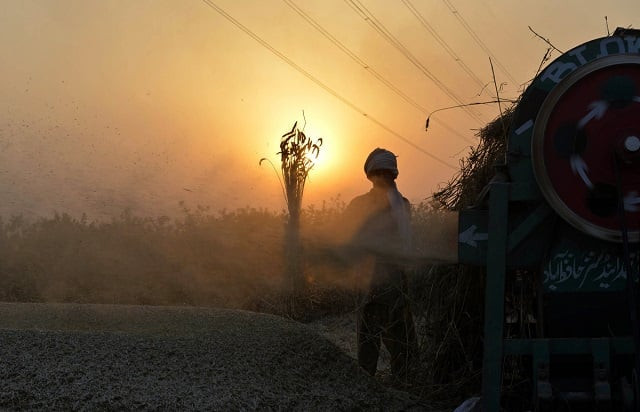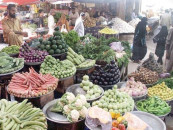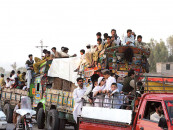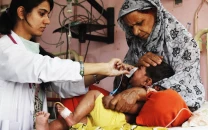Wheat sowing situation in flood-hit areas abysmal
NA panel told govt to prepare package for affected farmers

Food Security Ministry officials and National Assembly members on the relevant committee painted a grim picture of wheat cultivation in the flood-affected areas, saying on Tuesday that the sowing season had started but nothing was visible on the ground.
The National Assembly Standing Committee on National Food Security was informed that the country needed 250,000 tons of wheat seed for the flood-stricken farmers but the amount received for the purchase of seeds was short of the requirement.
The committee met at the National Agriculture Research Centre (NARC) with its chairman Rao Ajmal in the chair. The meeting discussed the matter related to the sowing of new crops after the recent devastating floods.
The chair said that the Ministry of Food Security had announced that the government would provide seeds to the farmers free of charge. “The sowing season has started but nothing is visible on the ground,” Rao Ajmal said.
Officials said that cultivable land in Sindh, Balochistan and Punjab had been destroyed to a large extent. “We need 400,000 sacks – 250,000 tons – of wheat seeds but the amount received from the relief fund for the purchase of seeds was not enough,” an official said.
Read Wheat hoarders face crackdown
“Rs80 billion is required to provide one sack of DAP [diammonium phosphate] fertiliser per acre,” the official from Food Security Ministry told the committee. He added that the food secretary would meet the prime minister for approval of a package for flood-hit farmers.
The members of the committee said that wheat sowing first started in Sindh, therefore, the farmers there should be provided seeds on a priority. The committee chairman said that sowing in Sindh started in September, while it began in Punjab on October 8.
Rao Ajmal mentioned that the previous government had announced Rs50 billion in subsidy but nothing was given. He stressed the need for hybrid seed to meet wheat shortage and formed a committee for the preparation of such seeds.
The ministry officials said that a special package had been proposed for the wheat farmers in the flood-affected areas. They stressed that the provinces would have to share 50% of the subsidy to be given to the farmers.
The committee was informed that there was large scale damage to agriculture in Sindh and Balochistan. However, Punjab and Khyber-Pakhtunkhwa sustained less damage to their agricultural sector than the other provinces.



















COMMENTS
Comments are moderated and generally will be posted if they are on-topic and not abusive.
For more information, please see our Comments FAQ